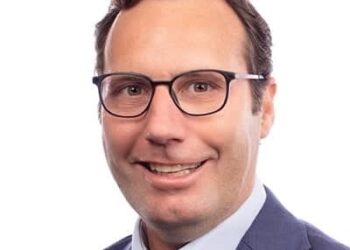Forget upcycling old furniture and reorganising the garage, wills are the latest subject of the DIY craze.
Online DIY will kits are not new but their popularity has surged since the COVID-19 pandemic.
The main factors behind their appeal are convenience and cost. DIY will kits start from around $50, some are even free. They can be completed online anywhere, anytime, without the need to visit a lawyer’s office.
But the expression “you get what you pay for” is certainly applicable here, with many online wills successfully challenged and proven not to stand up in court.
They are increasingly at the centre of legal disputes, reflecting their rising take-up among Australia’s ageing population.
The Supreme Court of Western Australia’s case of Rogers v Rogers Young demonstrates the pitfalls of taking a DIY approach to estate planning.
This 2016 case centred around the estate of Kathleen Mary Rogers and included 20 plaintiffs including the deceased’s only child, Alexandra.
While Rogers left her entire estate to Alexandra, a dispute arose because parties could not agree on the proper interpretation of the will, specifically if Alexandra, a minor at the time of her mother’s death, would inherit at age 18 or age 25.
In his ruling, Judge Master Sanderson described homemade wills as a “curse”.
“Homemade wills which utilise what is sometimes known as a will kit are not much better and this case proves the point,” he said.
“The disposition effected by the will is not complicated and no doubt the testator had clearly in mind what she intended to achieve but the way the will is drafted is difficult and the parties have been put to the trouble and expense of coming to court seeking directions as to its proper interpretation.”
In this case, legal fees for the parties – estimated to be around $100,000 each – were paid for out of the estate.
In the 2021 case of Trevor Alan Thompson as executor of the estate of Angela Helen Thompson v Upton, the same judge in the same court, when ruling on a DIY will, said: “Yet again, this matter illustrates the folly of persons making homemade wills. The estate of the deceased is very modest ($511,000). There is no doubt a good part of the estate will be consumed in a contest over the meaning of what by any measure is a difficult document. It is invariably the case that money spent on having a will professionally drafted is a sound investment”
Both cases highlight the value of advice in helping people to foresee and prevent mistakes, minimise the risk of disputes and ensure that assets are smoothly and efficiently distributed in accordance with a person’s wishes.
With the oldest of the Baby Boomers now in their late 70s, improving access to affordable and accessible estate planning advice is extremely important to reduce the number of people dying intestate and the number of contested wills.
When it comes to DIY wills, mass affluent Australians are most at risk of getting it wrong.
Sophisticated, high-net-worth individuals are more likely to seek advice due to the vast amount of wealth at stake, higher levels of financial literacy and willingness to pay for good advice.
That said, many people have more wealth than they realise, due to the strong performance of Australia’s property and equity markets, which have propped up the value of homes and superannuation balances.
People don’t need to be a brain surgeon to accumulate wealth worth fighting over.
Pleasingly, more financial advisers are expanding their value proposition to include estate planning to meet the increasing demands and expectations of their client demographic.
Retirement planning, aged care advice and estate planning are closely linked and entwined, ideally positioning financial advisers to play a leadership role in encouraging and guiding clients to get their estate plans in order.
It’s complicated
It is a myth that only people with complex lives, such as blended families and significant investment portfolios, need advice, evidenced again by Rogers v Rogers Young.
Rogers had one child whom she left her entire estate.
It doesn’t get simpler than that and yet some obtuse language in her drafting of her own will led 20 plaintiffs to successfully challenge it.
Many times, people think their lives and wishes are straightforward but they haven’t been challenged to think through various plausible scenarios such as outliving their children or certain excluded family members feeling entitled to a share of the estate.
Experienced advisers know the pertinent questions to ask and, importantly, how to ask them because they have the necessary soft skills, including active listening, rapport building and empathy.
They are able to objectively say if certain decisions could be perceived as unfair and favoritism and, therefore, more likely to be challenged.
Through their networks, they are also able to connect clients with reputable legal professionals to execute documents and, because many have an ongoing, long-term relationship with their clients, they can support them to update their will, if their circumstances and wishes change over time.
Importantly, advisers intimately know their clients, which enables them to ensure that their estate plans align with their broader values, goals and objectives.
While it’s true that more people die without a will than those who die with a DIY will, and arguably a DIY will is better than no will at all, the danger is that homemade wills give people a false sense of security that inhibits them from seeking professional advice.
For whatever reasons, be it to save time or money, Kathleen Rogers and Angela Thompson chose to prepare their own will and they believed their will was legally binding. That confidence ended up costing their families a lot of money, time and inconvenience.
All of that could have been avoided with some advice.
Ian Tindale is a director of Redchip Lawyers and a co-founder of digital estate planning solution, Yodal.




Good points and a timely warning for the inexperienced. In the English legal system there is the famous London Legal Chambers of Lincolns Inn – the largest of the Inn of Court and chambers to barristers that appear in the English Courts. One of the drinking toasts that are made by the barristers is “To the man who authors his own will”. Inexperienced and unqualified people seeking to draft legal documents (such as wills) and making technical errors is one of the greatest sources of business for the barristers and the Courts. This comes at great financial, emotional and mental cost to the uninformed members of the public who thought that a quick DIY would save them money.